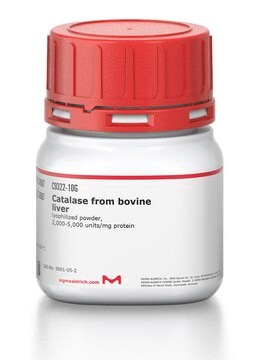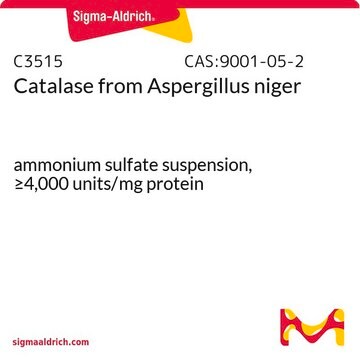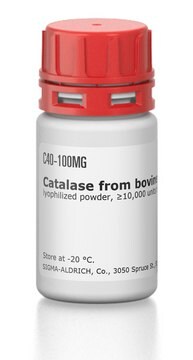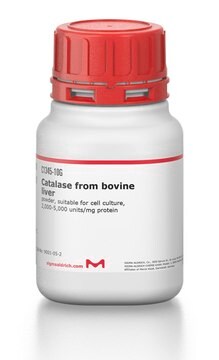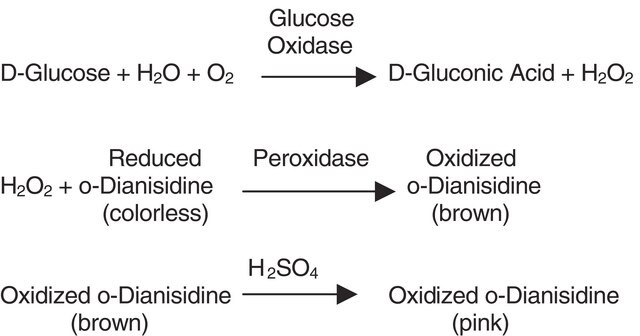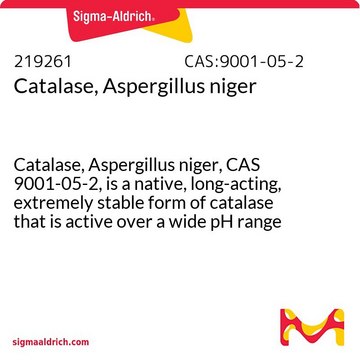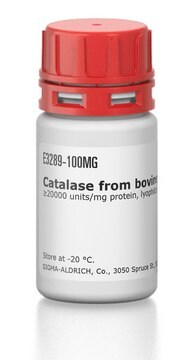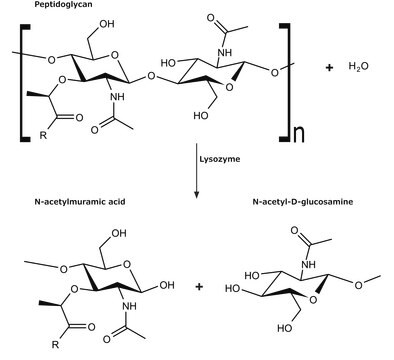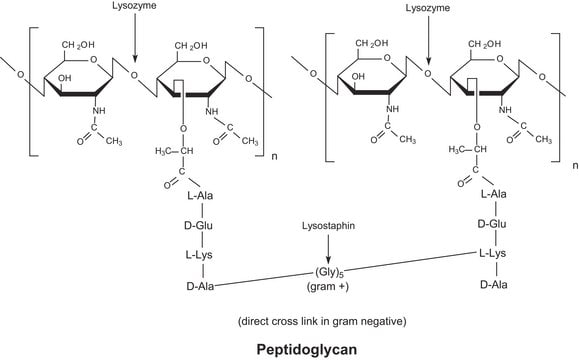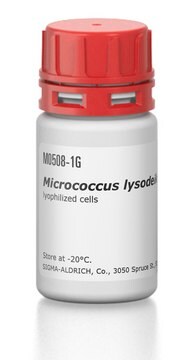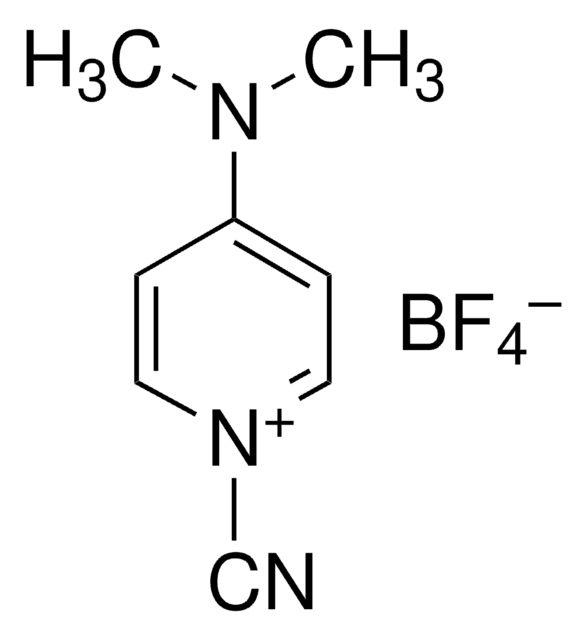60634
Katalase aus Micrococcus lysodeikticus
solution, dark brown
About This Item
Empfohlene Produkte
Biologische Quelle
bacterial (Micrococcus lysodeikticus)
Qualitätsniveau
Form
solution
Spezifische Aktivität
65,000-150,000 U/mL
Mol-Gew.
Mr ~230000
Methode(n)
microbe id | metabolite detection: suitable
Farbe
dark brown
Löslichkeit
0.05 M phosphate buffer pH 7.0: soluble, clear, brown (1:10)
Protein-ID-Hinterlegungsnummer
UniProt-Hinterlegungsnummer
Versandbedingung
wet ice
Lagertemp.
2-8°C
SMILES String
O(CC)C(=O)c1ccc(cc1)O
InChI
1S/C9H10O3/c1-2-12-9(11)7-3-5-8(10)6-4-7/h3-6,10H,2H2,1H3
InChIKey
NUVBSKCKDOMJSU-UHFFFAOYSA-N
Allgemeine Beschreibung
Catalase (CAT) is an antioxidant enzyme, encoded by the CAT gene family. The enzyme is ubiquitously expressed in most of the aerobic organisms.
Anwendung
Biochem./physiol. Wirkung
Einheitendefinition
Signalwort
Danger
H-Sätze
P-Sätze
Gefahreneinstufungen
Resp. Sens. 1
Lagerklassenschlüssel
10 - Combustible liquids
WGK
WGK 1
Flammpunkt (°F)
Not applicable
Flammpunkt (°C)
Not applicable
Persönliche Schutzausrüstung
Eyeshields, Gloves
Hier finden Sie alle aktuellen Versionen:
Besitzen Sie dieses Produkt bereits?
In der Dokumentenbibliothek finden Sie die Dokumentation zu den Produkten, die Sie kürzlich erworben haben.
Kunden haben sich ebenfalls angesehen
Unser Team von Wissenschaftlern verfügt über Erfahrung in allen Forschungsbereichen einschließlich Life Science, Materialwissenschaften, chemischer Synthese, Chromatographie, Analytik und vielen mehr..
Setzen Sie sich mit dem technischen Dienst in Verbindung.